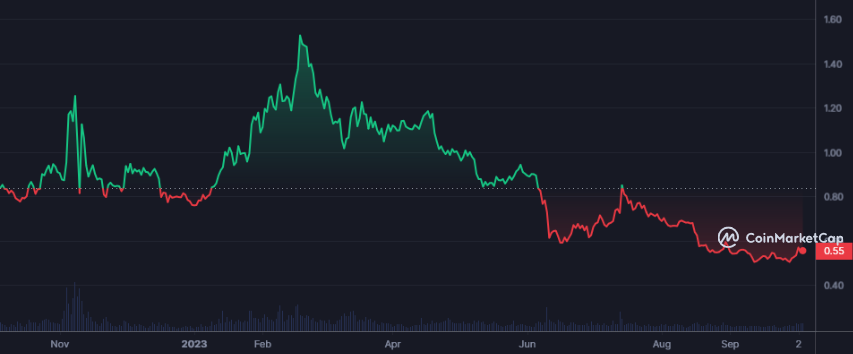Polygon Surges 11%, Why is MATIC Outperforming the Market?

In what’s been a fairly solid week for the cryptocurrency top dogs, one token is performing head and shoulders above the rest. Polygon’s native coin, MATIC, has enjoyed gains of 11% over the past seven days of trading – beating out all competitors in the top 20 by market cap except Solana. It appears the cause for this rise isn’t any one piece of news. Rather, Polygon’s positive week comes on the back of lots of small wins within its sprawling ecosystem.
Google Cloud Joins the Fray
The biggest news from Polygon in the past seven days is their partnership with Google Cloud. Polygon is a proof-of-stake (PoS) network, meaning it requires independent validators to approve transactions and ensure the protocol remains secure. On September 29, Google Cloud joined the list of 100+ validators working together to keep Polygon alive and well. All up, Google Cloud is staking 25,391 MATIC tokens – currently valued at around AUD $22,827.
Google Cloud wasn’t the only company to take note of Polygon’s growth. The past week saw a 29% increase in active wallet addresses using the Layer 2 scaling solution, causing the protocol to entrench itself as the second-biggest L2 network (behind Arbitrum).
On top of this, the world’s most-traded stablecoin, USDC, is being launched on Polygon later this week. The token variant, set to be compatible with all major Polygon ecosystem apps, will be issued by Circle.
The blockchain-based gaming sector on Polygon continues to bubble, with the NFT collecting game Yat Fantasy launching on the protocol. The biggest outcome of this launch is the ability for players to participate without needing a wallet – significantly reducing the barrier to entry for blockchain newbies.
Strong Fundamentals Amid Mediocre Performance
The cryptocurrency market hasn’t had the most exciting year. Still, it has been far from a disaster, with big names like Bitcoin (25%) and Ethereum (24%) up significantly over the past 12 months. Polygon, however, has languished and recorded a steep drop of 30% since October last year. Like most other altcoins, Polygon has struggled largely due to regulatory uncertainty in the US, particularly around which tokens are determined as “unregistered securities.”

However, with court cases involving the Securities and Exchange Commission (SEC) starting to generate positive outcomes for the crypto industry, the regulatory risk is ever-so-slightly beginning to dwindle. Polygon’s gains may simply be the coin’s value catching up to the ecosystem’s strong fundamentals.






